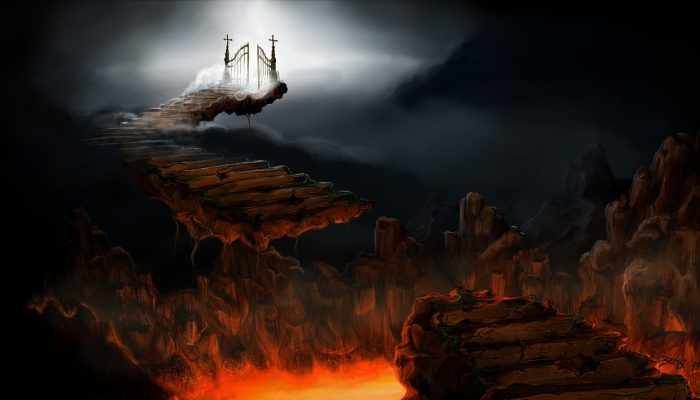
Although the answers vary, every religion has some idea of what happens to you after you die. While some religions believe you might be reincarnated, the Latter-day Saint belief in a spirit paradise and a spirit prison is rather unique. Or is it? After further study, I found that this belief was interestingly similar to the Catholic belief in purgatory.
What is Purgatory?
First, let’s talk about what purgatory even is. The Catholic Church defines purgatory as a purification to achieve the holiness necessary to enter the joy of heaven. Purgatory is the purification or temporary punishment waiting period between death and resurrection which prepares them for heaven. Catholics believe in the words found in Revelation 21:27, that no unclean thing can enter the presence of God.
Catholics believe you will go through two judgments: one that is individual and one that is general. Right when you die, you will undergo the individual judgment. This belief comes from Hebrews 9:27, which reads “it is appointed for men to die once, and after that comes judgment.” You are judged immediately and will know your final destiny, heaven or hell.
Then comes the general judgment. Matthew 25:31-32 tells us that at the end of time, “the Son of Man comes in His glory, and all the angels with Him, then He will sit on his glorious throne. Before Him, will be gathered all the nations, and He will separate them one from another as a shepherd separates the sheep from the goats.” As revealed in Luke 12, it is at this general judgment that all our sins will be publicly revealed (Luke 12:2–5).
So Do We Believe?
Long story short, we believe in a different form of purgatory. We believe that through the atonement, everyone who received a body will be resurrected, where their spirits will reunite with their new, resurrected bodies. When we die, we will be separated into two categories: the just and the unjust. This is comparable to the immediate individual judgment of the Catholic belief.
Individual Judgment
The spirits who accepted the gospel of Jesus Christ and lived good lives will go to Spirit Paradise. The latter will go to Spirit Prison.
Spirit Paradise is a place where we will continue to grow and learn the things of God. Those in Spirit Paradise and those who were resurrected at the time of Christ will teach those in Spirit Prison, giving them the chance to accept the Gospel of Christ.
Spirit Prison is a place for those who rejected Christ’s Gospel, lived wicked lives, or never had the chance to accept the Gospel in mortality. For those who did evil, this will be a time of suffering and repentance. For those who died without the knowledge of the gospel, it will be a place to learn and accept Christ. If the spirits decide to accept His Gospel and become followers of Christ, they will immediately move into Paradise.
General Judgment
At the end of time, after the Millennial Rule of Christ on Earth, the final judgment will occur. This final judgment comes second, and therefore is comparable to the Catholic general judgment. At this time, everyone will have been resurrected to a degree of glory—celestial, terrestrial, or telestial.
Those who accepted Christ will be resurrected in the First Resurrection of the just. They will become perfected beings and will dwell with our Father in Heaven and Jesus Christ for eternity.
Remnants of the Truth
Clearly, there are some similarities to our beliefs. The belief that there is a waiting period between death and resurrection is the same! But the specificities of that waiting period are different.
The truth of the afterlife existed at the beginning of time. It is the same truth Christ taught during his ministry. The same truth that was lost during the apostasy and was restored by Joseph Smith. At this time, the Catholic Church is still in apostasy from that truth. That is why we see similarities between our religion and others: one is true and one has a remnant of truth.
What similarities have you found between The Church of Jesus Christ of Latter-day Saints beliefs and others?
To learn about similarities between The Church of Jesus Christ of Latter-day Saints and Judaism, read When a Jew Reads the Book of Mormon.





